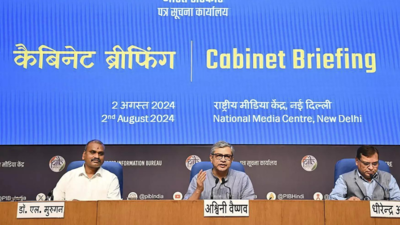NEW DELHI: The Union Cabinet on Friday approved at least half-a-dozen amendments to banking laws, including allowing up to four nominees in deposit accounts and introducing a concept of “successive and simultaneous” nominations to reduce hardship to customers, amid rising unclaimed deposits.
Currently, banks allow one nominee for savings bank and fixed deposits, which is proposed to be raised. At the same time, drawing from insurance and HUF accounts, successive and simultaneous nominations will allow joint account holders and the heirs to get the funds even after the death of an account holder, a banker explained. There can be more nominees in the public provident fund, which is run by the central government. The details of the provisions will only be clear once finance minister Nirmala Sitharaman introduces the bill in Parliament. Govt and officials were tight-lipped about the plan.
Sitharaman had flagged unclaimed deposits and funds as a concern several months ago and asked banks, mutual funds and other financial services companies to transfer the money to the rightful claimants. But unclaimed deposits soared to over Rs 78,000 crore at the end of March, 2024 despite banks launching drives to settle claims.Separately, the law is also proposed to be amended to allow for transfer of dividends and bonds to the Investor Education Protection Fund (IEPF) if the money is lying unclaimed. Currently, only shares of banks are transferred to IEPF.
Govt has also proposed to give banks greater freedom in deciding the remuneration to be paid to auditors, a decision that was hitherto left to RBI. Besides, shareholders with holdings up to Rs 2 crore will be considered those with substantial interest, instead of the current limit of Rs 5 lakh, which was fixed almost six decades ago.
The bill will also seek to redefine the reporting dates for banks for regulatory compliance to 15th and last day of every month instead of second and fourth Fridays. Also, if passed, cooperative banks will be able to appoint directors, other than chairman and whole-time directors, for up to 10 years.
Source: The Times of India




 Cabinet Approves 8 High-Speed Road Corridor Projects Worth Rs 50,655 Crore
Cabinet Approves 8 High-Speed Road Corridor Projects Worth Rs 50,655 Crore 